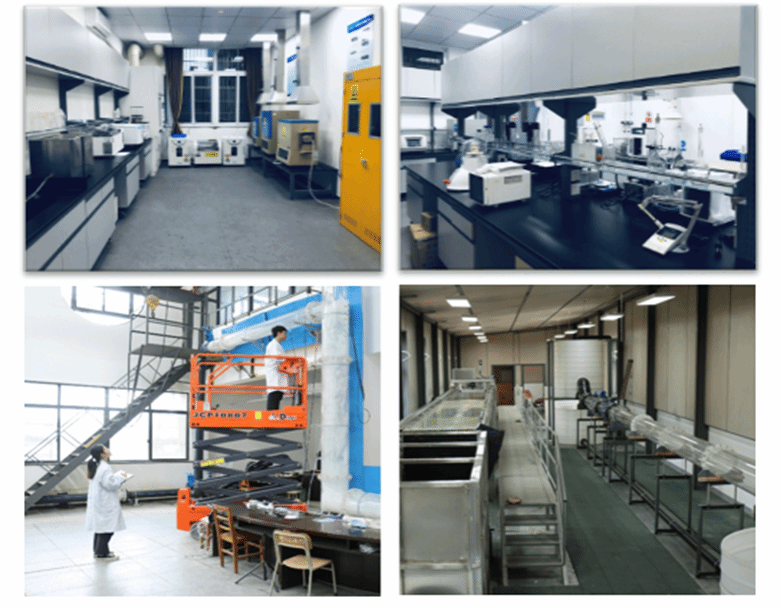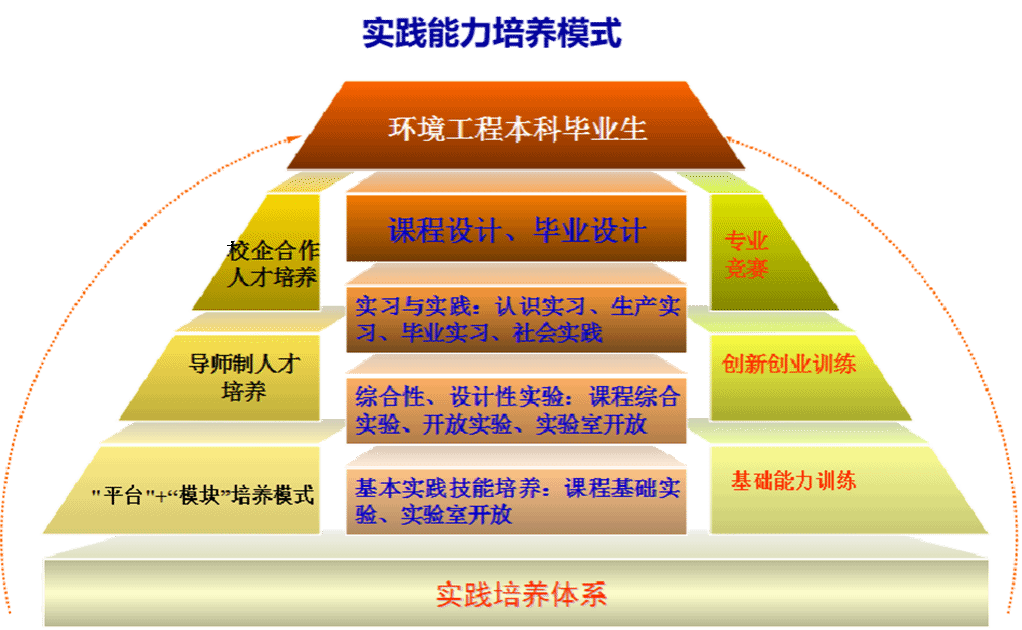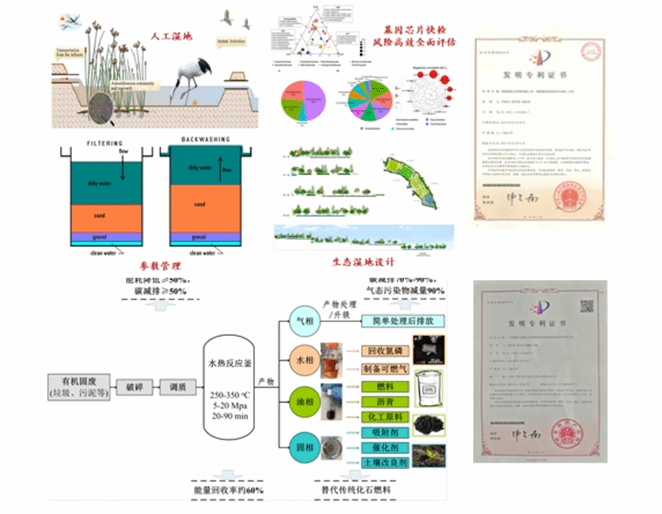The Department of Municipal and Environmental Engineering, formerly known as the Department of Environmental Engineering since its establishment in 2002, was renamed to its current name in 2013. The department offers an undergraduate program in Environmental Engineering and a second-level master’s program in Civil Engineering. In 2022, the Environmental Engineering major was approved as a first-class undergraduate major construction site in Zhejiang Province.
Faculty: The department currently boasts 24 full-time teachers, all of whom hold doctorates. Among them, there are 4 professors (including 1 member of the Canadian Academy of Engineering) and 9 associate professors. Ten teachers of the department have studied, worked or traveled to the United States of America, Canada, Germany, Netherlands, Japan, Australia, and other overseas countries and regions as visiting scholars for academic exchanges. The professional teachers have long been engaged in teaching and research in the field of environmental engineering, and have achieved numerous research accomplishments in areas such as environmental pollution control, environmental planning, cleaner production, environmental impact assessment, water supply and drainage design.
Laboratory Construction: Over the past five years, with joint funding from the Ministry of Finance of China, the Zhejiang Provincial Department of Finance, and the university’s projects, a total of over 20 million yuan has been invested in equipment and laboratory construction. The Department of Civil and Environmental Engineering has prioritized the establishment of six key laboratories: Environmental Monitoring Laboratory, Environmental Engineering Microbiology Laboratory, Water Pollution Control Engineering Laboratory, Air Pollution Control Engineering Laboratory, Solid Waste Treatment and Disposal Laboratory, and a Large Instrument Analysis Platform. The total value of the equipment and instruments exceeds 15 million yuan, with a total laboratory area of nearly 2,000 square meters. Currently, the department possesses large-scale instruments and equipment such as Gas Chromatography-Mass Spectrometry (GC-MS), Gas Chromatographs (GC), Liquid Chromatographs (LC), Inductively Coupled Plasma Optical Emission Spectrometry (ICP-OES), Gel Permeation Chromatographs (GPC), Ion Chromatographs (IC), Total Organic Carbon (TOC) Analyzers, and Flow Injection Analysis (FIA) systems, along with various teaching facilities. These laboratories and equipment adequately cater to the training and independent experimentation needs of students in the major, while also providing an excellent research platform for faculty members.

Student Cultivation: The department has pioneered the implementation of the tutorial system for undergraduate students, ensuring that from the very beginning of their academic journey, every student undergoes a mutual selection process to be assigned a mentor who will provide comprehensive guidance in areas including academics, daily life, mindset, and future employment. The department cultivates students through a broad-based, foundational education with a strong focus on practical experience and quality enhancement. We leverage platforms for knowledge and skills and templates for specialized direction, all within an enriched practical environment to enhance practical abilities. With an “industry-demand-oriented” and “student-centered” approach, we focus on nurturing students’ professional literacy and skills, seamlessly integrating student innovation with faculty research and environmental protection club activities. Over 80% of students have the opportunity to participate in various scientific research projects and win accolades in student competitions. Collaborative efforts between teachers and students have yielded notable successes in research, innovation, and entrepreneurship, including:
l Wang Yangyan’s 2nd Prize in the 2021 Zhejiang Provincial Challenge Cup & Gold Award in the 2021 China College Students’ “Internet+” Innovation and Entrepreneurship Competition
l Mo Yongyi, Shao Siting, Ding Xiaoshuang, & Zhong Yi’s 3rd Prize in the 2021 Zhejiang Ecological Environment Innovation Competition
l Guo Hantong’s 2nd Prize in the 2020 Zhejiang Ecological Environment Innovation Competition
l The 9th “Mother River Award” --Green Team Award of the Central Committee of the Communist Youth League of China in 2019
l Qingyuan Environmental Observation Center: Candidate for the “Most Beautiful Zhejiang People - Youth Leader” Award in 2018, & Gold Award Winner of the 2018 Zhejiang College Students’ “Internet+” Innovation and Entrepreneurship Competition
lWang Kan, Huang Xiaolong: Outstanding Individual Contribution Award Recipients for the “Ten Million Projects” and Beautiful Zhejiang Initiative in 2018

Scientific Research: The department serves as an experimental and practical teaching base that integrates teaching, scientific research, and production, providing support for scientific research and social services in pollution control, resource conservation, and environmental monitoring. In the past five years, the department’s laboratories have facilitated the undertaking of over 10 National Natural Science Foundation of China projects and 34 provincial and municipal scientific research projects, with a total funding of 9.07 million yuan allocated to the university. Additionally, the department has undertaken over 250 projects related to environmental engineering for government departments and local enterprises, encompassing design, environmental impact assessment, ecological planning, environmental monitoring, technical consultation, and more, specifically addressing “three wastes” pollution control and resource recovery. These projects have amounted to over 47 million yuan in contract funding. The department has published over 180 research papers in various journals and secured 18 patents.

Industry-University-Research (IUR) Platform: To strengthen the integration of industry, academia, and research, and enhance students’ practical abilities, the department has established internship and IUR bases with over 20 enterprises and institutions. These bases provide excellent venues for social practice and employment opportunities for both undergraduate and graduate students.